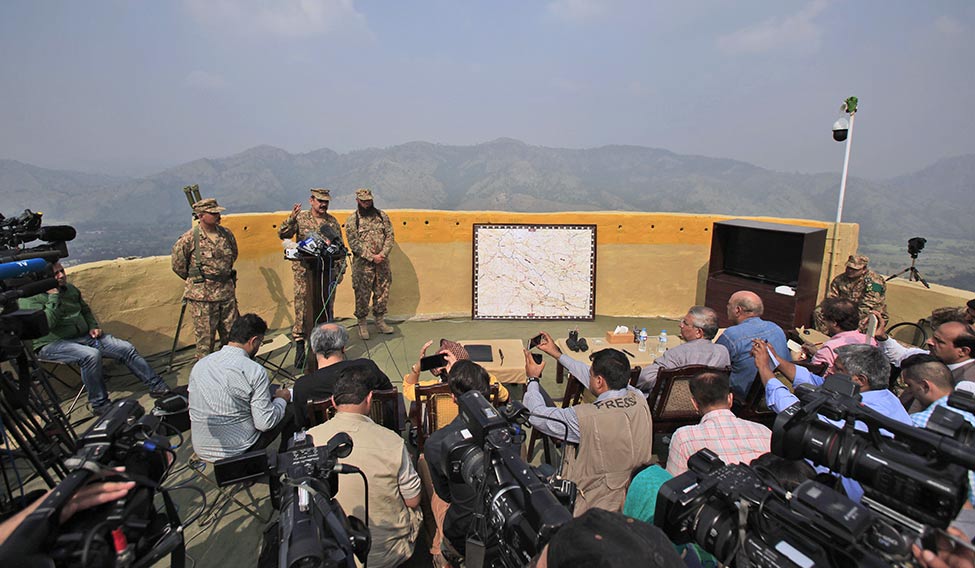On the night of September 28, Indian soldiers claimed that they came into Pakistan and carried out a surgical strike, taking out targets on the Pakistani side of the Line of Control. But when Indians and Pakistanis woke up next morning, they were told two different things. While the Indian Army said its soldiers went inside the disputed territory, the Pakistan military asserted that it was routine cross-border firing.
The Indian Army has stuck to its claim and has backed it up with video evidence, while Pakistan has unleashed its propaganda machinery to counter those claims. One such exercise was done by the Pakistan army’s media wing called ISPR (Inter-Services Public Relations), which flew handpicked journalists to the LoC to disprove the Indian claims. The fact that not everyone was taken has led to an impression among journalists that the selection was intentional. “Such trips come under the category of embedded journalism, which in my opinion is not free and unrestricted,” said Murtaza Solangi, who heads the Islamabad bureau of a television channel.
“Pakistani politicians have been trying to push back against the narrative of the surgical strikes. They say this is about what is happening in Kashmir for the last few months,” said Hassan Belal Zaidi, an English journalist. He said India was successful in changing the discourse on Kashmir by making it all about Pakistan’s militant policy, when it was originally about Indian atrocities in the valley. But there are people who argue that India could do so because of Pakistan’s dubious policy towards militancy. “The Pakistani state continues to differentiate between good and bad militants, even though we are told otherwise. India, therefore, could change the narrative,” said Senator Afrasiab Khattak of the Awami National Party.
The Pakistani media has already started pointing fingers at the civilian government for its failure to present the country’s case before the world. Pakistan army chief General Raheel Sharif said elected representatives needed to do more to change the global perception about Pakistan being a terrorist state. Pakistan army, has opted to send a message about its preparedness. Chiefs of different forces have visited their respective bases and heavy military equipment and troops are being moved to the border. Prime Minister Nawaz Sharif chaired a cabinet meeting, followed by a national security committee meeting and a joint parliament session to send a message of unity.
Optimists, however, hope that better sense will prevail. “People on both sides do not want war,” said Khattak. “The people’s will will succeed.”





